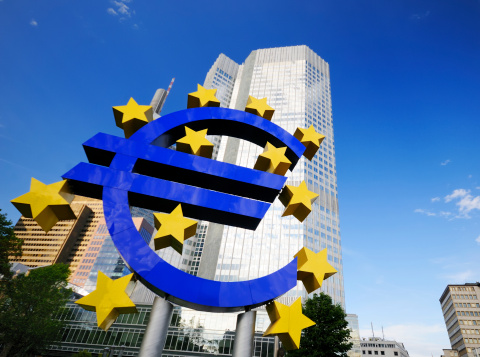Investing
Europe Economy Catches a Falling Knife as PMI Flattens
Published:
Last Updated:
Purchasing managers index (PMI) data for the eurozone as issued by Markit, which did not give reason for much optimism, but should temper pessimism about the region’s overall economy. According to the research firm:
The Markit Eurozone PMI Composite Output Index rose for the third consecutive month in January according to the flash estimate, up to a ten-month high of 48.2 from 47.2 in December, and up sharply from October’s post-crisis low of 45.7. However, while the PMI suggests that the recent downturn may have reached its strongest back in October, the survey continues to signal falling activity overall – which has been the case in 16 of the past 17 months.
The two economies that matter in the region — Germany and France — took different economic directions in January. Fortunately, the larger of the two — Germany — did better.
According to Markit’s specific country data:
Trends were far more varied by country, notably among the two largest euro member states. While output across both manufacturing and services grew at the fastest rate for a year in Germany, French companies reported the steepest downturn since March 2009.
The renewed expansion in Germany was led by the service sector recording the strongest growth for a year-and-a-half, while manufacturing reported the first, albeit marginal, increase in production since March.
Output fell sharply in France, and at faster rates in both manufacturing and services. Outside of France and Germany the average rate of decline remained strong, but moderated for the fourth month in a row to the weakest since last March.
The news likely is good for Angela Merkel, who has struggled recently in her reelection bid. Recent voting in Lower Saxony gave opposition parties an edge. Merkel can now claim her policies have helped the nation’s manufacturing.
On the other hand, the French data nicks work by President Francois Hollande. His push to raise taxes on the richest French citizens has backfired as some of the wealthy have threatened to leave the country. His push to force large companies in France to keep current employment bases also has been met from resistance from corporations with margins lowered by the region’s recession.
Europe’s manufacturing sector may have caught the falling knife loosened by the region’s economy. The most troubling period in the recent history of the European Union may have begun to move behind it.
Let’s face it: If your money is just sitting in a checking account, you’re losing value every single day. With most checking accounts offering little to no interest, the cash you worked so hard to save is gradually being eroded by inflation.
However, by moving that money into a high-yield savings account, you can put your cash to work, growing steadily with little to no effort on your part. In just a few clicks, you can set up a high-yield savings account and start earning interest immediately.
There are plenty of reputable banks and online platforms that offer competitive rates, and many of them come with zero fees and no minimum balance requirements. Click here to see if you’re earning the best possible rate on your money!
Thank you for reading! Have some feedback for us?
Contact the 24/7 Wall St. editorial team.